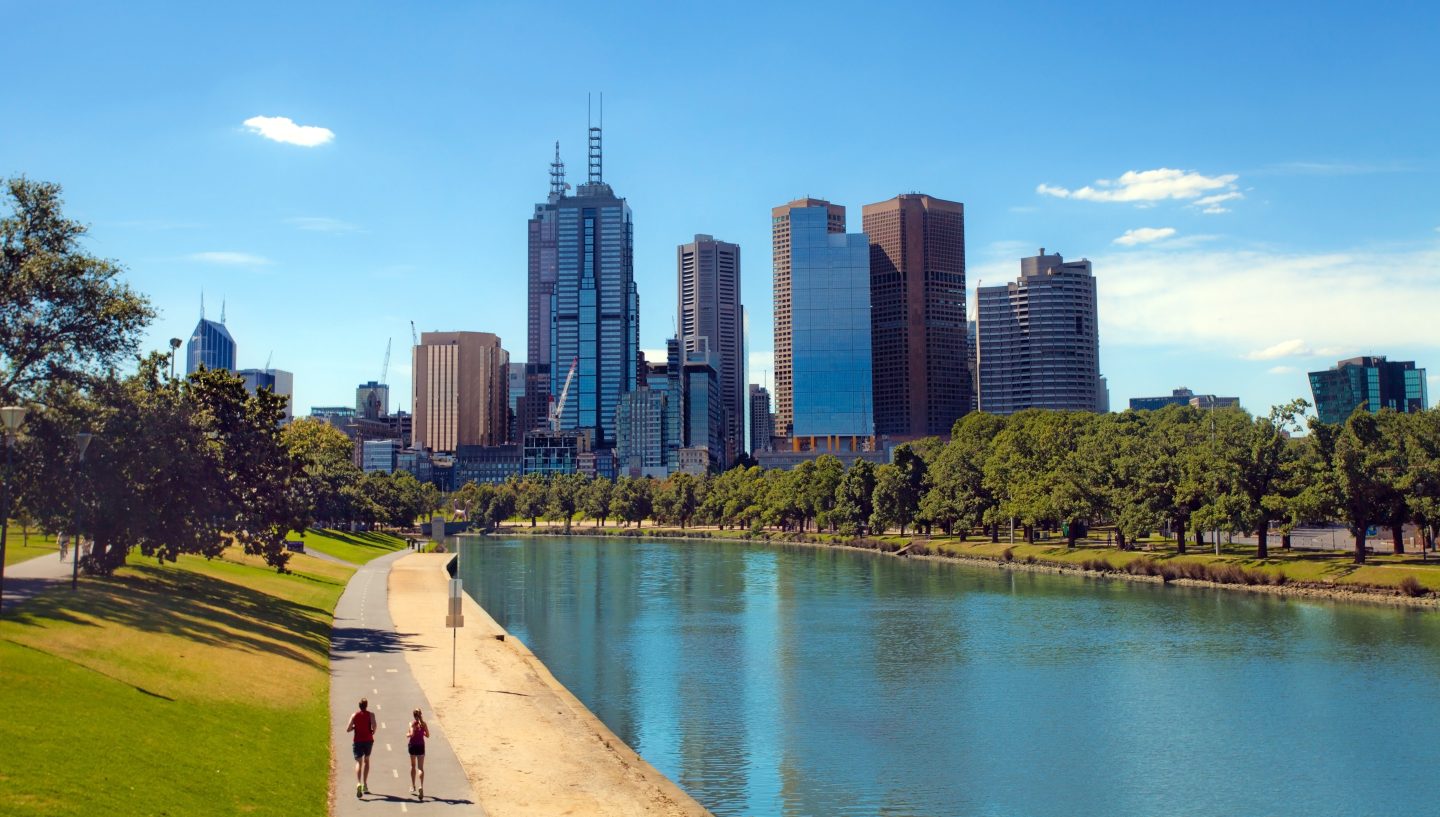In today’s globalized world, pursuing international education has become increasingly essential, and study abroad programs are the gateway to transformative experiences. Our comprehensive guide is meticulously curated to provide aspiring students with invaluable insights and a wealth of information on study abroad programs. Whether you’re looking to broaden your horizons, enhance your academic journey, or embark on a cultural adventure, this guide is your key to unlocking the world of study abroad programs. Explore the endless opportunities, scholarships, destinations, and essential tips that will empower you to make informed decisions and embark on an unforgettable educational journey.
The Ultimate guide to study abroad programs for college students
- Initial idea and research
- Academic planning
- Application process
- Financial planning
- Health and safety
- Pre-departure orientation
- On-the-ground logistics
- During your study abroad
- Returning home

Initial idea and research
1-2 years before departure
Self assessment: Determine your academic and personal goals for studying abroad. What do you hope to achieve? What countries or programs interest you?
In the realm of study abroad programs, self-assessment stands as the pivotal first step for college students contemplating this life-changing journey. Before embarking on the adventure of a lifetime, it’s imperative to delve deep into self-reflection and identify personal goals, academic aspirations, and cultural interests. Self-assessment not only helps students align their ambitions with suitable study abroad programs but also plays a crucial role in ensuring a meaningful and enriching experience. By understanding their motivations and expectations, students can tailor their study abroad choices to align seamlessly with their educational and personal development objectives, ultimately setting the stage for a transformative exploration of global opportunities.
Research: Look into potential universities or programs that offer courses related to your field of study in the desired destination.
When it comes to making informed decisions about study abroad programs, thorough research stands as the foundational pillar for college students. The journey to studying abroad is a unique and life-altering experience, and it begins with a deep dive into the available study abroad programs. Through diligent research, students can explore a vast array of program options, ranging from diverse destinations and academic focuses to scholarship opportunities and cultural immersion experiences. By taking the time to research and compare different study abroad programs, students can uncover the perfect match that aligns with their academic interests and personal aspirations, setting the stage for a transformative educational adventure beyond borders.
Finances: Estimate the costs involved, including tuition, living expenses, travel, and insurance. Investigate available scholarships, grants, and financial aid.
Delving into the realm of study abroad programs, the consideration of finances emerges as a paramount first step for college students. Deciphering the financial aspects of studying abroad is crucial to ensure a seamless and enriching experience. Students must weigh the costs of tuition, living expenses, travel, and insurance against their available resources and funding options. By meticulously assessing their financial situation and exploring scholarships and grants, students can embark on their study abroad journey with confidence, knowing that they have a solid financial plan in place to support their global educational aspirations.
Language: Assess your language proficiency and consider language requirements for your chosen destination.
When contemplating participation in study abroad programs, assessing one’s language proficiency emerges as a crucial initial step for college students. Language plays an integral role in effective communication and academic success while abroad. It’s essential to evaluate your language skills to determine whether you meet the program’s language requirements or if language preparation is necessary. By gauging your proficiency early in the planning process, you can make informed decisions about program options, select suitable destinations, and undertake language courses or training if needed, ensuring a smoother and more rewarding study abroad experience.

Academic planning
1 year before departure
Meet with an advisor: Discuss your study abroad plans with your academic advisor to ensure that the courses you take abroad will transfer back to your home institution.
For college students aspiring to explore study abroad programs, meeting with a university advisor is a vital early step in the academic planning process. These knowledgeable advisors specialize in guiding students through the intricacies of studying abroad. During these consultations, students can receive invaluable insights into program options, course selection, credit transfer, and academic requirements. This proactive engagement with advisors not only ensures a seamless integration of study abroad into their academic journey but also helps them make informed decisions that align with their educational goals. By collaborating with university advisors, students can embark on their study abroad adventure fully prepared and with a clear roadmap for academic success.
One bonus to discussing your study abroad hopes and goals with an advisor early in your process is that they can guide you on what resources your particular school already has in place. Many universities already have established collaborations for specific programs to study abroad in different schools around the world. The university’s study abroad advisor can help you understand which destinations will be easier to make happen because a connection is already established. They also can likely give you advice on which of your required courses for graduation you should save to complete on study abroad and which you should be sure to get done before leaving. Which leads us into…
Select courses: Identify the courses you want to take abroad and confirm their availability at the host university.
When planning to participate in study abroad programs, selecting the right courses is a pivotal early step for college students. This decision not only shapes their academic journey but also contributes to a well-rounded global learning experience. It’s imperative to align course choices with one’s major, interests, and academic goals, ensuring that the credits earned abroad seamlessly transfer back to their home institution. Researching the curriculum offered by the host university or program provider is essential to make informed decisions. By meticulously selecting courses, students can maximize their study abroad adventure, gain a diverse perspective on their field of study, and foster personal and professional growth, making it a rewarding and enriching experience.

Application process
9-12 months before departure
Choose a program: Apply to a study abroad program or directly to a foreign university. Pay attention to application deadlines.
Selecting the right study abroad program is a pivotal first step in the application process for college students gearing up for an international academic adventure. There are so many different study abroad programs out there, each offering unique cultural experiences, academic opportunities, and destinations. Students should meticulously research and consider their preferences, including program duration, location, and academic focus. This decision sets the stage for the application process, enabling students to tailor their documents and requirements to their chosen program.
Students need to first have picked their study abroad program before they can really start any other part to the application process because they must know what all the required steps are to the application, when the deadlines are, whether there are any fees, etc. By investing time in this critical decision, aspiring study abroad students can embark on a transformative journey that aligns with their academic and personal aspirations, ensuring a seamless transition to their chosen program and a truly enriching experience.
Gather document: Collect necessary documents, including transcripts, letters of recommendation, and a well-crafted personal statement.
After selecting the ideal study abroad program, the next crucial step in the application process involves gathering essential documents such as letters of recommendation, transcripts, and personal essays. These documents play a pivotal role in demonstrating the student’s qualifications, motivations, and readiness for the chosen study abroad program. First, securing letters of recommendation from professors or mentors who can vouch for the student’s academic abilities and character is vital. These letters provide insights into the student’s potential and contribute to a well-rounded application.
Additionally, transcripts showcase the student’s academic history and performance, helping the program coordinators assess their eligibility. Finally, the personal essay serves as a platform for students to articulate their goals, cultural adaptability, and the unique perspective they bring to the study abroad experience. By meticulously preparing and organizing these documents, aspiring study abroad students can present a compelling application that increases their chances of acceptance into their desired program, facilitating a seamless transition into the global academic arena.
Apply for a passport: If you don’t already have one, apply for a passport as early as possible. If you do have, be certain that it’s not going to be within 6 months of its expiration during the time that you anticipate being abroad.
Applying for your passport during the early stages of preparing to study abroad is a strategic move that can significantly streamline the process. When considering study abroad programs, obtaining a passport should be a top priority. Passport application timelines can vary, so applying promptly ensures you won’t encounter last-minute hassles or delays that could jeopardize your study abroad plans. Having a valid passport in hand gives you the flexibility to seize opportunities as they arise, opening doors to a world of educational and cultural experiences through study abroad programs.
In general, you usually cannot travel on a passport that is within 6 months of it’s expiration date, so even if you already have one, you definitely want to check what it’s expiration date is to make sure you don’t need to renew it before going on your study abroad program. By taking this proactive step, you’re well-prepared to embark on your global academic journey with confidence, leaving you more time to focus on other essential aspects of your overseas adventure.
Currently, the routine processing time for new US Passports applications is about 10-13 weeks. However, that can change at any time for the better or for the worse and wait times to receive passports can occasionally be very long.
Visa requirements: Research and fulfill visa requirements for your chosen destination. This may include providing financial statements and attending interviews.
During the application phase of preparing for study abroad programs, it’s crucial for students to proactively determine whether they have any visa requirements for their chosen destination. This step is paramount in ensuring a smooth and hassle-free transition into the international academic arena. Visa application processes can vary significantly from one country to another, and they often require thorough documentation and processing time. By addressing visa requirements early on, students can avoid last-minute complications that may jeopardize their study abroad plans. Furthermore, staying informed about visa obligations demonstrates responsibility and a commitment to adhering to the host country’s legal requirements, setting the stage for a successful and enriching study abroad experience.

Financial planning
6-12 months before departure
Budgeting: Create a detailed budget for your study abroad experience, accounting for tuition, accommodation, food, transportation, and personal expenses.
Creating a comprehensive budgeting plan is an essential aspect of financial planning for students embarking on study abroad programs. Studying abroad offers incredible opportunities for personal and academic growth, but it’s crucial to manage finances wisely to ensure a seamless and enriching experience. A well-structured budget helps students track their expenses, from tuition and accommodation to daily living costs and travel expenses. By meticulously planning and sticking to their budget, students can make the most of their study abroad adventure without worrying about unexpected financial challenges. Additionally, budgeting instills financial discipline and responsibility, fostering valuable life skills that will serve them well beyond their time studying abroad.
Scholarships and grants: Apply for scholarships and grants to help offset costs.
When engaging in financial planning for their study abroad programs, students should actively seek out scholarships as a primary means of funding. Scholarships not only alleviate the financial burden but also recognize and reward academic excellence, extracurricular achievements, and unique talents. Many organizations, universities, and government bodies offer a variety of study abroad scholarships tailored to diverse fields of study and destinations. By applying for scholarships, students can significantly offset the costs associated with international education, making their dream of studying abroad more attainable. These financial aids not only ease the financial strain but also enhance the overall study abroad experience by providing opportunities for cultural immersion and personal growth.
In addition to scholarships, grants are another invaluable resource for students seeking financial support for their study abroad programs. Grants, often awarded based on financial need or specific project proposals, can cover various expenses, including tuition, travel, and living costs. Government agencies, foundations, and institutions frequently offer grants to encourage international education and cultural exchange. Applying for grants complements financial planning efforts by reducing the financial burden on students and their families. By diligently researching and applying for suitable grants, students can make their study abroad aspirations a reality while gaining a deeper understanding of global cultures and perspectives.
Banking: Inform your bank about your travel plans and ensure you have access to funds while abroad.
As students engage in financial planning for their study abroad programs, it’s imperative to include informing their bank about their travel plans on their checklist. Taking this proactive step ensures seamless access to funds while abroad and prevents potential disruptions in financial transactions. By notifying their bank, students can prevent unexpected card blocks or transaction denials, often triggered by unusual international activity, which can cause unnecessary stress during their study abroad experience. Moreover, banks can provide valuable information on currency exchange, international fees, and the availability of banking services in their chosen destination, empowering students to make informed financial decisions and enhance their overall financial preparedness for the journey ahead.

Health and safety
3-6 months before departure
Health insurance: Ensure you have adequate health insurance that covers international travel.
Before embarking on study abroad programs, students should prioritize ensuring that their health insurance coverage extends to international destinations. This prudent step is essential for safeguarding their well-being while studying abroad. Adequate health insurance not only offers peace of mind but also ensures access to quality medical care in the event of illness or injury during their time overseas. Students should thoroughly review their existing health insurance policies to understand coverage limitations and potential exclusions while abroad. In some cases, supplementary international health insurance may be necessary to bridge any gaps in coverage and ensure comprehensive medical protection. By proactively addressing health insurance concerns, students can focus on their academic and cultural experiences, knowing that their health and safety are well-protected throughout their study abroad journey.
Vaccinations: Consult a travel clinic or your healthcare provider to receive any necessary vaccinations or medications.
When preparing for study abroad programs, it is imperative that students thoroughly research the vaccination requirements and recommendations for their intended destinations. Different countries may have specific health risks, and understanding the vaccination requirements and recommendations is essential to ensure a safe and healthy experience while studying abroad. Some destinations may require proof of certain vaccinations for entry, while others may have recommended vaccinations to protect against prevalent diseases. By proactively addressing these vaccination requirements and recommendations, students can prioritize their health and well-being, minimize health-related risks, and fully enjoy the cultural and academic opportunities that their study abroad experience has to offer.
For a general list of what vaccines you may need to get by country you can check out the CDC’s page on Travelers’ Health by destination.
Emergency Contacts: Share your travel plans and emergency contact information with family and friends.
Before embarking on their study abroad programs, students should make it a priority to share their detailed itinerary and emergency contact information with friends and family back home. This proactive step ensures that loved ones are informed about their whereabouts and can provide support in case of any unforeseen circumstances. In the event of an emergency or unexpected situation, having a reliable point of contact back home can be invaluable. Sharing this information not only provides peace of mind for both students and their families but also establishes a safety net that enhances the overall security and well-being of students during their time abroad. It’s a simple yet crucial step that contributes to a smooth and secure study abroad experience.

Pre-departure orientation
1-2 months before departure
Attend orientation: Participate in pre-departure orientation sessions provided by your home institution or program provider.
Attending orientation sessions before embarking on a study abroad program is definitely an important step for students. These orientation programs provide a comprehensive understanding of the host country, the academic institution or program, cultural nuances, safety protocols, and essential travel information. They equip students with the knowledge and resources needed to navigate the challenges and opportunities of studying abroad successfully. Orientation fosters cultural sensitivity, enhances personal safety awareness, and helps students adapt seamlessly to their new environment. By actively participating in these sessions, students can maximize their study abroad experience, ensuring a smooth transition and a well-prepared start to their academic and cultural journey in a foreign land.
Packing and travel arrangements: Start packing and make necessary travel arrangements, such as booking flights and securing accommodations for your arrival.
Preparing for a study abroad program demands careful planning, and packing well and making all necessary travel arrangements is pivotal. Efficient packing ensures that students have all the essential items they’ll need while minimizing the stress of overpacking. Making travel arrangements in advance guarantees a smooth journey, including booking flights, accommodations, and transportation at your destination. This proactive approach allows students to focus on their academic and cultural immersion upon arrival, without the added burden of last-minute logistics. Proper packing and organized travel arrangements contribute to a seamless and stress-free transition, ensuring that students can fully immerse themselves in the enriching experience of their study abroad program from day one.
Buying the essentials (and some non-essentials too): Buy what you can ahead of time. Whether it’s the vitamins and medicines you usually use or some nice new ‘fits – make sure you have whatever you’ll need and some things that you’d just like to have too.
From your preferred over-the-counter pain medicine, to some new outfits, and a good pair of walking shoes – you won’t want to be far from home without some creature comforts. It’s important to think of all the logistics to your study abroad program. Do you plan to do lots of walking and exploring in your free time? Will you spend time at the beach? In the chance you get ill, are you going to be somewhere you may not have access to the same cold and flu medicine you find usually most affective? Of course you’ll almost definitely be able to buy things you need while your away too. But depending on exchange rates it may be cheaper to buy them at home and bring them with you. Just make sure that suitcase has a little room in it for bringing back home all the new stuff you get while away!

On-the-ground logistics
Upon arrival
Orientation abroad: Attend orientation sessions at your host university or program to familiarize yourself with the campus, academic expectations, and local culture.
Attending orientation upon arrival at their study abroad destination is a crucial step that sets the tone for a successful and enriching experience. These orientation programs offer essential insights into local culture, academic expectations, safety guidelines, and logistical information. By actively participating, students can familiarize themselves with the host country, its customs, and potential challenges, allowing for smoother cultural integration. Orientation sessions also provide an opportunity to connect with fellow students, creating a supportive network of peers who can share experiences and offer valuable advice throughout the study abroad program. In essence, attending orientation is a vital component of the study abroad journey, ensuring that students are well-prepared, culturally aware, and ready to make the most of their academic and personal growth opportunities in their new environment.
Settle in: Find housing, open a local bank account, and acquire a local SIM card or phone plan.
Settling in smoothly upon arrival for a study abroad program is key to a successful international experience. Start by securing housing arrangements, ensuring a comfortable and secure place to call home during your stay. Acquiring a local SIM card is essential for staying connected and accessing local services, making it easier to communicate and navigate your new surroundings. Consider opening a local bank account if needed to manage finances efficiently and avoid excessive international transaction fees. Embrace the local culture by exploring your neighborhood, trying local cuisine, and engaging with the community. By taking these proactive steps, students can ensure a seamless transition and make the most of their study abroad program, both academically and culturally.
Immigration and registration: Complete any required immigration and registration procedures.
Upon arriving for their study abroad program, students must prioritize completing all necessary immigration and registration procedures. Adhering to these requirements is not only a legal obligation but also crucial for a smooth and stress-free stay in the host country. Immigration processes may include visa validation, passport checks, and entry documentation. Additionally, registering with local authorities, if required, ensures that students are accounted for and have access to essential services during their stay. By diligently following these procedures, students can start their study abroad journey on the right foot, avoiding any potential legal issues and ensuring a seamless transition into their new academic and cultural environment.

During your study abroad
Throughout your stay
Academic focus: Stay engaged with your coursework, attend classes, and seek help if needed.
Maintaining a strong academic focus while participating in a study abroad program is paramount to ensuring a successful and rewarding experience. While exploring a new country and culture is undoubtedly exciting, it’s crucial not to lose sight of the primary reason for being abroad: academics. Staying dedicated to coursework, attending classes, and actively engaging with professors and fellow students enhances the learning experience and ensures that academic goals are met. Moreover, a robust academic performance abroad can have a positive impact on future educational and career opportunities. Striking a balance between cultural exploration and academic commitment allows students to make the most of their study abroad program, fostering personal growth and intellectual development in a global context.
Cultural immersion: Immerse yourself in the local culture, make friends, and explore your host city and country.
Engaging in cultural immersion is a cornerstone of a transformative study abroad program. It’s not just about studying in a foreign country; it’s about fully embracing the culture, traditions, and people of that nation. Cultural immersion enriches the overall experience, fostering a deep appreciation for global diversity, broadening perspectives, and enhancing intercultural communication skills. It allows students to step outside their comfort zones, break down barriers, and build meaningful connections with locals. By actively participating in cultural activities, trying local cuisine, and attending cultural events, students can create lasting memories and gain a more profound understanding of the world, making their study abroad program truly unforgettable and personally enriching.
Stay safe: Be mindful of your safety and follow local laws and customs.
Ensuring safety is paramount when participating in a study abroad program. Students should prioritize their well-being by staying informed about the local laws, customs, and potential risks of their host country. It’s crucial to maintain situational awareness, travel in groups when necessary, and secure belongings to avoid theft. Registering with local authorities and sharing itineraries with friends and family can provide added security. Additionally, having reliable health insurance and understanding emergency procedures are essential. By staying vigilant, responsible, and prepared, students can maximize the safety of their study abroad experience and focus on their academic and cultural growth.
Have some fun: It goes without saying really, but your traveling – you’re abroad! See the world! Experience new things! Make good memories!
While academic pursuits are at the core of a study abroad program, don’t forget to savor the experience and have some fun, too. Exploring a new culture, forging friendships with locals and fellow students, and indulging in unique cultural activities are all essential parts of the journey. Balancing academics with enjoyable experiences enriches personal growth and memories. So, embrace the adventure, step out of your comfort zone, and make the most of your study abroad program by creating lasting, enjoyable moments that will stay with you long after you return home.

Returning home
End of your program
Transcripts: Ensure that your academic records are sent back to your home institution.
After completing their study abroad program, students should take the crucial step of ensuring their transcripts are sent promptly to their home university. This action is essential to guarantee that the academic credits earned abroad are properly recorded and can be seamlessly transferred back to their home institution. Failing to do so may result in delays in degree completion or complications in academic planning. It’s a proactive measure that ensures a smooth transition and allows students to build on the valuable experiences gained during their study abroad term while staying on track with their academic goals.
Reflect and share: Reflect on your study abroad experience, and consider sharing your experiences with others.
Reflecting on one’s study abroad experience and sharing it with others is a vital part of the journey. It allows students to gain a deeper understanding of the personal and academic growth achieved during their time abroad. Sharing these experiences not only enriches their own understanding but also provides insights and inspiration to friends, family, and future study abroad participants. It fosters a sense of global citizenship and encourages cultural exchange, reinforcing the transformative impact of study abroad programs. By reflecting on and sharing their experiences, students contribute to a more globally aware and interconnected community, extending the benefits of their study abroad program far beyond their own individual journey.
Remember that the specific steps and timelines may vary depending on your destination, program, and personal circumstances. It’s crucial to stay organized, communicate with advisors and program coordinators, and be adaptable throughout the process to make the most of your study abroad adventure.
Participating in a study abroad program offers students a transformative and invaluable experience. It provides the opportunity to broaden horizons, fostering a global perspective that is increasingly important in today’s interconnected world. Through cultural immersion and academic exploration in a foreign country, students gain a deeper understanding of diverse cultures and traditions. This experience not only enhances personal growth but also enriches academic and professional opportunities, making study abroad programs a valuable investment in a student’s educational journey and future success.


